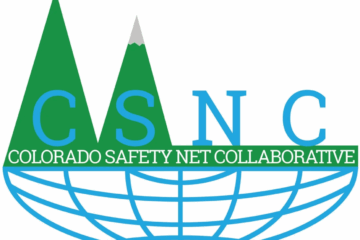 It seems to be human nature to attempt to squash behavior around health care into accepted consumer modes of conduct but there are times when it is just impossible. People do not buy refrigerators right after experiencing traumatic events or while sick or in pain. Conversely, they do not always have the time, presence of mind, or physical capability to see if the nearest hospital is in their health insurance network.
It seems to be human nature to attempt to squash behavior around health care into accepted consumer modes of conduct but there are times when it is just impossible. People do not buy refrigerators right after experiencing traumatic events or while sick or in pain. Conversely, they do not always have the time, presence of mind, or physical capability to see if the nearest hospital is in their health insurance network.
In an earlier blog, I discussed how I fractured a vertebra in a slip and fall on an icy morning and was concerned about being prescribed oxycodone due to the addictive nature of opioids. I also had another reason for being concerned about taking oxycodone – I’m allergic to hydrocodone and was nervous about experiencing a similar reaction.
Being that I work at CIVHC, it is probably not surprising that I have a fair bit of awareness of health care costs, facilities, and the importance of good decision-making. I do my best to apply my knowledge but sometimes it is just too much to cope with in the moment.
Two days after my fall, I woke up to the worst headache of my life, horrible light sensitivity, and an upset stomach. Completely freaked out, I used my training and called the Denver Health NurseLine to see what I should do. After explaining to the nurse about my headache, my back injury, the oxy, and my hydrocodone allergy, I was told to go to the Emergency Department. I thanked the nurse and called a friend for a ride to the nearest ED.
By the time we arrived my head was worse and my back was on fire. As the hours passed and even lying down became unbearable, I began alternating very slow laps around the waiting room and resting in a supine position on the linoleum to deal with the pain. It was during one of these laps that I finally noticed the big sign over the check-in counter. The sign declaring the facility to be out-of-network for my insurance plan.
I wept as I went back to my friend. Despite my pain, I had managed to execute half of the correct care-setting decision-making process, I determined the type of setting but had forgotten about the all-important insurance network. Could I really start this entire process over again? Move to another location, check-in, and start waiting?
The staff at the front desk called my name just as I reached my friend’s chair. Nope, I wasn’t going anywhere. I had been waiting for nearly three hours and had run out of fight.
After spending weeks worried about the bill I would receive, I learned that the on-call doctor had actually been in-network so I didn’t have an out-of-pocket payment for his treatment, but I was anticipating receiving a bill for the out-of-network facility.
I’m very fortunate because CIVHC has a wonderful insurance broker who is also our advocate in situations like this; she fought the out-of-pocket expenses for emergency treatment arguing that I had to go to the closest facility since my symptoms could have been life-threatening. In the end, I did not end up paying anything for the ED visit except for the required copay.
In the realm of out-of-network hospital bills, I’m lucky my story had a happy ending. In Colorado and across the nation, people have had horrible experiences with exorbitant out-of-network bills, and as a result, state legislators passed HB 19-1174 this year. CIVHC had the opportunity to inform all sides of the out-of-network conversation while the bill was in debate using data from the Colorado All Payer Claims Database (CO APCD). The database is written into the legislation as a source of information to help the Division of Insurance implement the bill’s requirements. More information about HB 19-1174 and data that will be provided from the CO APCD is available in CIVHC’s Out-Of-Network Bill FAQs.
What if you have an out-of-network bill from before the General Assembly passed HB 19-1174? There’s hope. The Colorado Consumer Health Initiative (CCHI), who helped support the legislation’s passage, currently helps individuals with medical bills and insurance claim denials through their Consumer Assistance Program (CAP), which has saved consumers over $800,000 in its first year of operation.
Limitations on out-of-network charges are an excellent first step toward protecting against surprise bills but the responsibility for creating a functioning, beneficial, and productive health system rests on all shoulders. People need to accept responsibility for making the best choices, providers need to be trained to treat them, and payers need to remove barriers to care. There also has to be an understanding that, in some instances, we aren’t consumers, we’re patients, and we’re scared, we’re hurting, and we need it all to be just a little bit easier.
